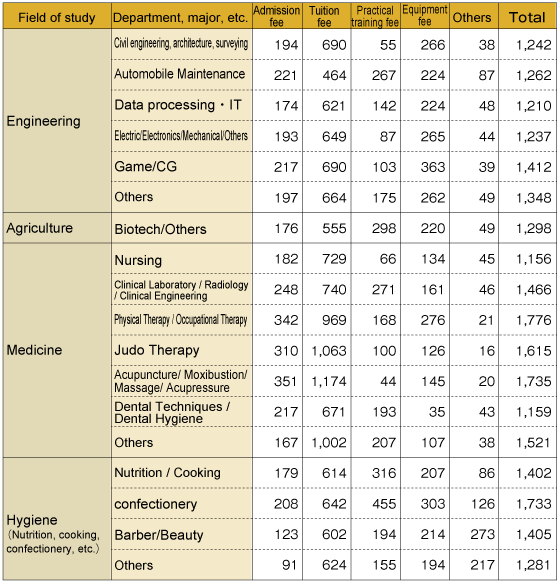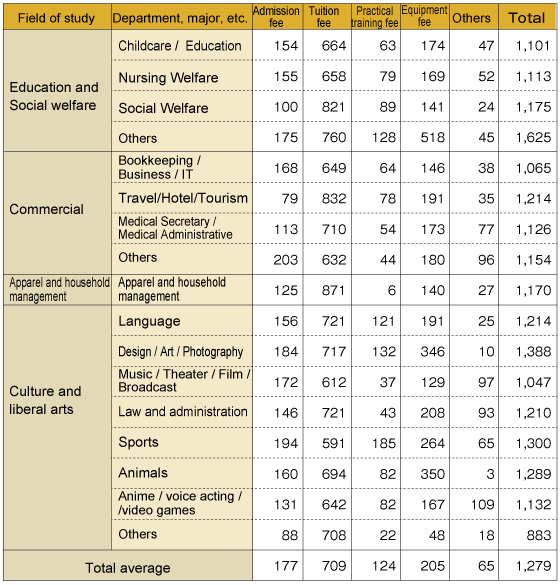1-4 Professional training colleges
Within the Japanese education system, a professional training college is considered a higher education institution like a university. Professional training colleges are institutions that train specialized and practical professionals to meet the needs of society. The employment rate of graduates is very high, and many find jobs related to the fields they have studied.

Requirements for admission to professional training colleges
Below are the basic requirements for obtaining a student visa and studying at a Japanese professional training college. Entrance qualifications are determined separately by each school, so check them in advance.
| Requirements for applicants | Requirements for the schools |
|
Completed twelve years of school education* Japanese-language proficiency: Classes at professional training colleges are conducted in Japanese. Refer to “1-2. Japanese-language proficiency and selecting a Japanese language school.” Financial ability (ability to pay expenses) →Must have sufficient funds for tuition and living expenses |
Must be a certified school Must have daytime courses →Student visas are not granted to those enrolled in nighttime courses of professional training colleges. |
* Depending on the educational system of your home country, you may be able to enroll even if you have not completed twelve years of formal education. Please check with the school you wish to enroll in for details.
Professional training college tuition
Since most professional training colleges are private, tuition fees are relatively high, but the total cost is lower since the time to graduation is shorter than that of universities. The average amount of tuition for the first year, including the enrollment fee, is 1,276,000 yen (2021). However, the amount varies by field of study, department and school.
The chart below shows the average tuition in Tokyo by field of study.
Difference between professional training colleges and universities
Professional training colleges allow students to concentrate on specialized subjects, and a high percentage of graduates find jobs related to their field of study. While universities offer education to acquire a broad range of knowledge, professional training college curriculums help students acquire the specialized knowledge and skills necessary for jobs.
 Find info about professional training colleges in Tokyo that accept international students here!
Find info about professional training colleges in Tokyo that accept international students here!

